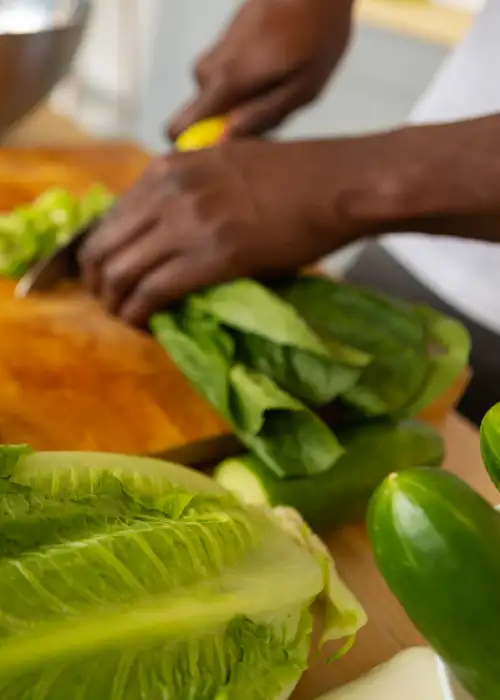Introduction
In Kenya, our traditional diets are often rich in plant-based foods – from abundant vegetables like sukuma wiki and terere to staple grains and legumes. Yet, for those considering a more deliberate vegetarian or vegan lifestyle, questions often arise about getting enough protein, iron, and other essential nutrients. As a nutritionist, I believe that thriving on a plant-powered plate in Kenya is not just possible, but incredibly delicious and beneficial for your health.
Embracing a vegetarian diet means prioritizing fruits, vegetables, whole grains, legumes, nuts, and seeds, while excluding meat, poultry, and fish (and for vegans, all animal products including dairy and eggs). This approach can lead to a lower risk of heart disease, type 2 diabetes, and certain cancers, while promoting a healthier weight. Let’s explore how you can build a balanced and vibrant plant-based diet right here in Kenya, ensuring you meet all your nutritional needs.
Building a Complete Plant-Based Plate: The Nutrient Essentials The key to a successful vegetarian diet is variety and smart food combinations.
- Protein Powerhouses: Forget the myth that plant-based diets lack protein. Kenya offers fantastic sources:
- Legumes: Beans (maharagwe, kidney beans), lentils, chickpeas, and cowpeas are excellent. Combine them with grains (like rice or maize) to form complete proteins.
- Groundnuts (Njugu): A fantastic source of protein and healthy fats, often used in stews or as a paste.
- Seeds: Pumpkin seeds, sunflower seeds, and chia seeds (now widely available) pack a protein punch.
- Soy Products: Tofu and tempeh are increasingly accessible and versatile protein sources.
- Iron Absorption Boosters: Plant-based iron (non-heme iron) is best absorbed when paired with Vitamin C.
- Iron Sources: Sukuma wiki, spinach, lentils, beans, and fortified cereals.
- Vitamin C Boosters: Oranges, passion fruit, mangoes, tomatoes, and bell peppers. Pair your sukuma wiki with tomatoes for maximum iron absorption.
- Calcium for Strong Bones: Beyond dairy, you can get calcium from:
- Dark Leafy Greens: Mchicha (amaranth leaves), sukuma wiki.
- Fortified Plant Milks: Soy, almond, or oat milk often come fortified with calcium and Vitamin D.
- Sesame Seeds.
Leveraging Kenya’s Abundant Produce Our local markets are a treasure trove for plant-based eating.
- Seasonal Fruits and Vegetables: Embrace the variety! Eating seasonally ensures you get the freshest, most nutrient-dense produce at its peak. Mangoes, pineapples, bananas, avocados, and a rainbow of vegetables are available year-round.
- Whole Grains: Sorghum (mtama), millet (wimbi), brown rice, and even locally sourced oats form the foundation of energy for a plant-powered diet.
- Healthy Fats: Avocados are a fantastic source of healthy monounsaturated fats. Groundnuts and other local nuts and seeds also provide essential fatty acids.
Smart Combinations and Meal Planning A well-planned vegetarian diet doesn’t need to be complicated.
- “Complementary Proteins”: While not essential to eat them in the same meal, combining legumes with grains (e.g., beans and rice, lentil stew with ugali) throughout the day ensures you get all essential amino acids.
- Batch Cooking: Prepare a large pot of beans or lentils at the beginning of the week for quick additions to meals.
- Experiment with Flavors: Kenyan cuisine is vibrant! Use local spices, herbs, and cooking methods to make your plant-based meals exciting and delicious.
Bringing it All Together: A Thriving Plant-Based Journey Embracing a vegetarian or vegan diet in Kenya is an exciting journey that offers immense health benefits. By focusing on a diverse range of whole, unprocessed plant foods, strategically combining nutrients, and leveraging our incredible local produce, you can create delicious, satisfying, and complete meals. It’s not just about what you omit, but about the incredible variety you include.
Are you incorporating more plant-based meals into your week? What are your favorite vegetarian Kenyan dishes? Share your ideas in the comments!

